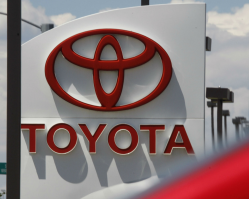— Toyota might be facing more questions from the National Highway Traffic Safety Administration (NHTSA) about unintended acceleration if a Rhode Island man gets his way.
Toyota has spent years fighting allegations its cars have defects that caused accidents, injuries and deaths. Toyota has always said the problems are caused by stuck gas pedals or misplaced floor mats that trapped the gas pedals.
However, in December 2013, Toyota agreed to enter talks to settle hundreds of unintended acceleration lawsuits. That decision occurred after a jury awarded $3 million to the injured driver and the family of a passenger killed in a crash of a 2005 Toyota Camry. Attorneys for the plaintiffs successfully argued electronic throttle-control system software was to blame for the crash.
Additionally, Toyota agreed to pay $1.6 billion over claims the trade-in value of Toyota vehicles dropped after reports of unintended acceleration.
The majority of reports named in the lawsuits involved cars accelerating at high speeds, but Rhode Island resident Robert Ruginis said the problem is occurring at slow speeds.
Ruginis has petitioned NHTSA asking for an investigation into alleged acceleration problems at slow speed or while the brake pedal is applied. Ruginis claims his wife's 2010 Toyota Corolla takes off on its own when braking, with one event allegedly causing a minor accident.
A Toyota dealer checked the car but couldn't replicate the problem, so Ruginis gave Toyota permission to analyze the event data recorder, a device similar to the "black box" used in commercial aircraft.
The automaker responded by saying technicians could find nothing wrong with the Corolla, yet strangely, Toyota didn't mention the investigation of the event data recorder. However, the petition says the data recorder proves the brake pedal was applied but the gas pedal was not touched before the accident or at the time of the crash. Even without any contact with the gas pedal, the engine RPMs doubled in less than two seconds.
NHTSA has been flooded with complaints about Toyota slow-speed unintended acceleration events, including in the 2010 Toyota Corolla.
"The contact stated that while attempting to park, the engine rpms increased excessively as the vehicle accelerated without warning. The failure was recurring." - Framingham, Massachusetts
"...while trying to park in my residential apartments at the above mentioned address (at a speed of 3-5 mph), applied the brakes and all of a sudden it caused an unintended acceleration and I hit the huge metallic trash bins in front of me at a very high speed on October 28th, 2013." - Greenbelt, Maryland
"When I drove at about 35mph on city street and hit brake pedal, engine suddenly roared to 8000rpm. I depressed the clutch fully, turned off engine, hit hard the brake pedal, turned left to median; the car hit hard the median curb and stopped partly in left lane." - Fairfax, Virginia
The petition also lists various accidents caused by Toyota vehicles taking off on their own at slow speeds.
- A 26-year-old bicyclist was struck and killed by the driver of a 2012 Camry, who according to police was halfway out of the space and stopped, when the vehicle suddenly accelerated.
- A 2002 Camry XLE suddenly accelerated off the fourth floor of a casino parking garage. Two witnesses stated they saw the Camry was easing into a space and come to a stop, with the brake lights on, when the vehicle suddenly surged forward.
Mr. Ruginis says he gathered evidence on 83 incidents related to model year 2006-2010 Toyota Corollas surging during low speeds, causing 34 injuries. The petition claims the crashes and injuries occurred because a driver was trying to maneuver in tight spaces, increasing the odds of hitting something or someone.
CarComplaints.com will update you with NHTSA's response, although it could take up to 120 days for that to happen.
To get an idea of how large the problem seems to be, click here. Or view the petition.

